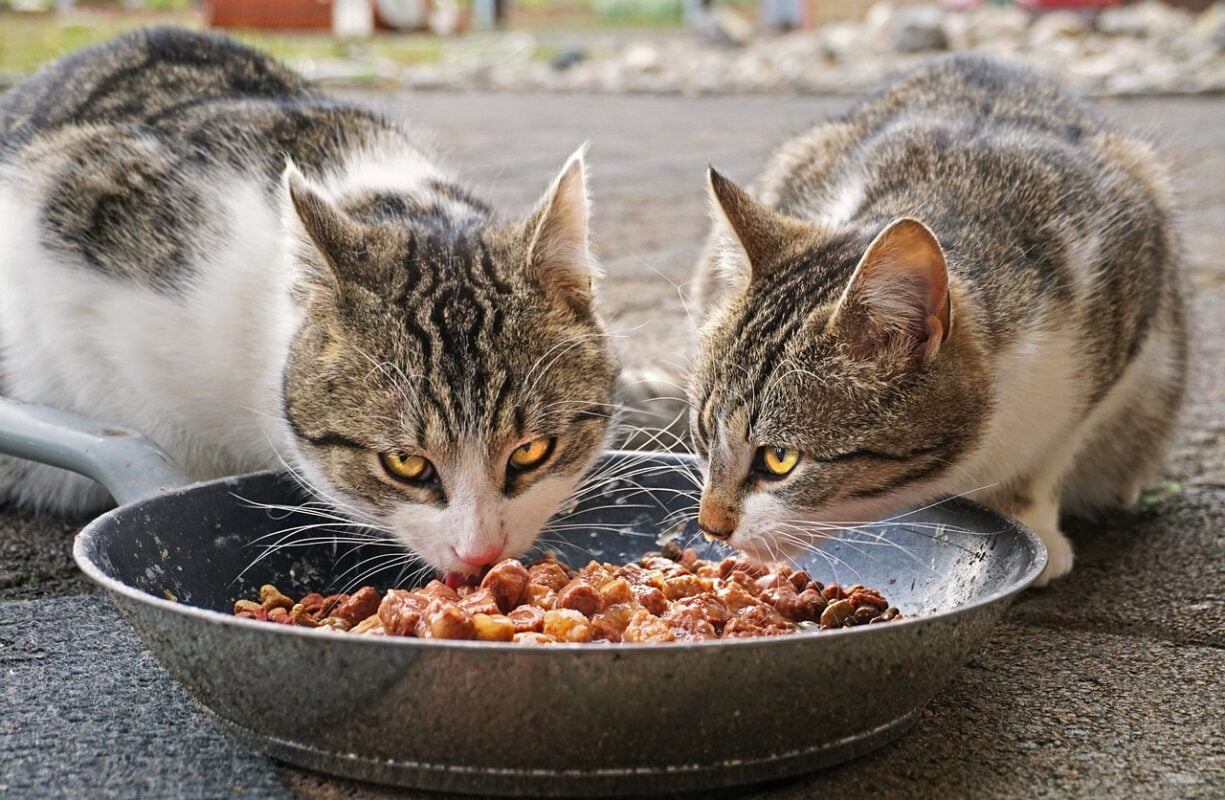
[ad_1]
In this article, we will discuss whether cats can eat sour cream from a vet’s perspective. We will explore the potential risks and benefits of feeding sour cream to cats, as well as provide recommendations for cat owners regarding this popular dairy product.
Can cats safely eat sour cream?
While some cats may enjoy the taste of sour cream, it is not recommended to feed this dairy product to cats. Cats are lactose intolerant, meaning they lack the necessary enzymes to properly digest dairy products like sour cream. Feeding sour cream to cats can result in gastrointestinal upset, including diarrhea and stomach pain.
If your cat consumes a small amount of sour cream as a one-time treat, they may not experience any immediate adverse effects. However, it is best to avoid regularly feeding sour cream or other dairy products to your cat to prevent potential digestive issues.
What are the potential risks of feeding sour cream to cats?
Feeding sour cream to cats can pose several risks to their health. Due to their lactose intolerance, cats may experience digestive upset such as diarrhea, vomiting, and stomach cramps after consuming sour cream. In severe cases, feeding dairy products to lactose-intolerant cats can lead to more serious gastrointestinal issues that may require veterinary care.
Additionally, sour cream is high in fat and calories, which can contribute to obesity and other health problems in cats if consumed in large quantities. Cat owners should be cautious about offering high-fat foods like sour cream to their feline companions to maintain their overall health and well-being.
Mukbang Cat eats sour cream asmr | Animal asmr
How can I safely treat my cat without feeding them sour cream?
There are many safe and healthy alternative treats that you can offer your cat instead of sour cream. Some examples include small pieces of cooked meat, fish, or poultry, as well as commercially available cat treats specifically formulated for feline dietary needs. These treats are not only delicious for your cat but also provide essential nutrients to support their health and vitality.
When giving treats to your cat, be mindful of portion sizes and frequency to avoid overfeeding. Treats should be given in moderation as part of a balanced diet to ensure that your cat maintains a healthy weight and nutritional intake.
Conclusion
While cats may enjoy the taste of sour cream, it is not recommended to feed this dairy product to them due to their lactose intolerance and the potential risks it poses to their health. Cat owners should opt for safe and healthy alternative treats that are specifically designed for feline dietary needs to ensure their cat’s well-being and overall health.
FAQs
Can I give my cat a small amount of sour cream as a treat?
While a small amount of sour cream may not immediately harm your cat, it is best to avoid feeding them this dairy product due to their lactose intolerance. Opt for safe and healthy alternative treats that are more suitable for your cat’s digestive system.
What are some alternative treats I can give my cat instead of sour cream?
Some safe and healthy alternative treats for cats include small pieces of cooked meat, fish, or poultry, as well as commercially available cat treats specially formulated for feline dietary needs. These treats provide essential nutrients without the risks associated with feeding sour cream.
Does feeding sour cream to cats cause any long-term health issues?
Feeding sour cream to cats can contribute to long-term health issues such as obesity and gastrointestinal problems if consumed regularly. It is best to avoid offering sour cream and opt for nutritious treats that support your cat’s overall health and well-being.
Can lactose-free sour cream be given to cats safely?
While lactose-free sour cream may have reduced lactose content, it is still not recommended to feed it to cats due to their general intolerance to dairy products. It is best to choose treats that are specifically formulated for feline dietary needs to ensure your cat’s health and digestion.
How do I know if my cat is lactose intolerant?
If your cat experiences gastrointestinal upset after consuming dairy products like sour cream, they may be lactose intolerant. Common symptoms of lactose intolerance in cats include diarrhea, vomiting, and stomach cramps. Consult your veterinarian for proper diagnosis and recommendations for managing your cat’s dietary needs.
[ad_2]
